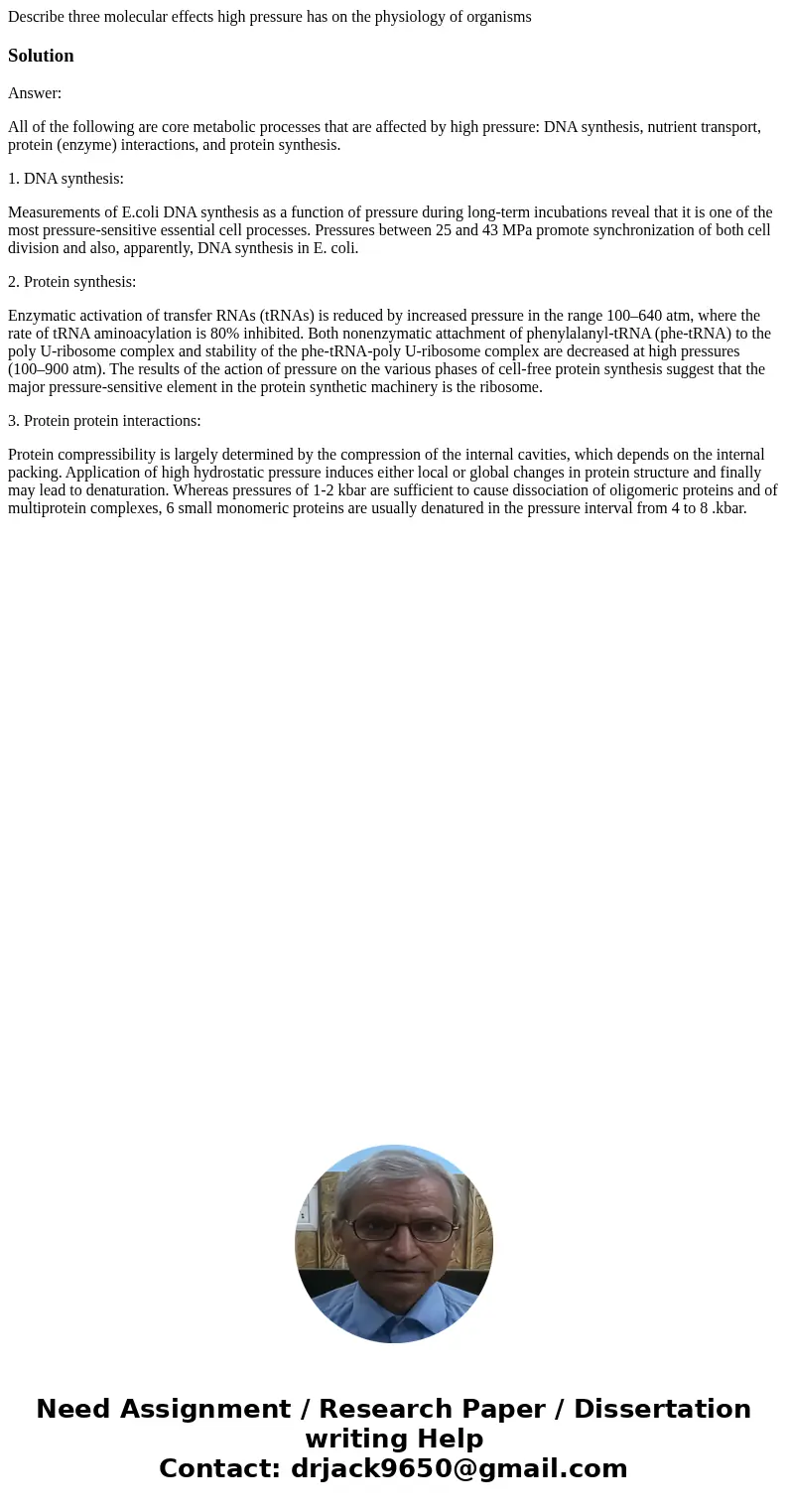Describe three molecular effects high pressure has on the ph
Describe three molecular effects high pressure has on the physiology of organisms
Solution
Answer:
All of the following are core metabolic processes that are affected by high pressure: DNA synthesis, nutrient transport, protein (enzyme) interactions, and protein synthesis.
1. DNA synthesis:
Measurements of E.coli DNA synthesis as a function of pressure during long-term incubations reveal that it is one of the most pressure-sensitive essential cell processes. Pressures between 25 and 43 MPa promote synchronization of both cell division and also, apparently, DNA synthesis in E. coli.
2. Protein synthesis:
Enzymatic activation of transfer RNAs (tRNAs) is reduced by increased pressure in the range 100–640 atm, where the rate of tRNA aminoacylation is 80% inhibited. Both nonenzymatic attachment of phenylalanyl-tRNA (phe-tRNA) to the poly U-ribosome complex and stability of the phe-tRNA-poly U-ribosome complex are decreased at high pressures (100–900 atm). The results of the action of pressure on the various phases of cell-free protein synthesis suggest that the major pressure-sensitive element in the protein synthetic machinery is the ribosome.
3. Protein protein interactions:
Protein compressibility is largely determined by the compression of the internal cavities, which depends on the internal packing. Application of high hydrostatic pressure induces either local or global changes in protein structure and finally may lead to denaturation. Whereas pressures of 1-2 kbar are sufficient to cause dissociation of oligomeric proteins and of multiprotein complexes, 6 small monomeric proteins are usually denatured in the pressure interval from 4 to 8 .kbar.

 Homework Sourse
Homework Sourse